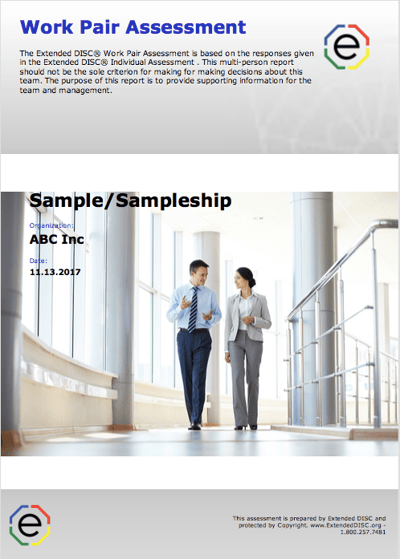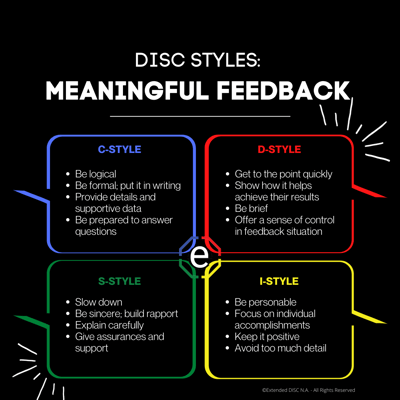Many organizations provide mentor programs to help develop employees. Employees want to learn new skills and grow within their careers. Mentor programs are designed to help by providing individuals with guidance, support, and valuable insights. To enhance the effectiveness of these programs, organizations are turning to tools like Extended DISC assessments.
Understanding the DISC Model
The DISC model, which categorizes personality traits into Dominance, Influence, Steadiness, and Conscientiousness, can be a powerful resource in understanding and optimizing mentor-mentee dynamics.
Before diving into the practical applications, it's essential to have a basic understanding of the DISC model. Each letter represents a behavioral trait:
- D-style (Dominance): Emphasis on results, assertiveness, and control.
- I-style (Influence): Outgoing, sociable, and focused on relationships.
- S-style (Steadiness ): Cooperative, patient, and team-oriented.
- C-style (Conscientiousness): Detail-oriented, analytical, and systematic.
Tailoring Pairings and Setting Expectations
One of the key benefits of the Extended DISC assessment is its ability to highlight individual strengths and differences. Use the assessment results to strategically pair mentors and mentees based on complementary or compatible personality traits. For example, an individual with a high I-style score may benefit from a mentor with strong D-style traits, creating a balanced and dynamic partnership. Do you want your C-style mentee to grow in seeing the "big" picture? Or do you want your D-style mentee to grow in patience and look at details before making a decision? Extended DISC can help you align the mentoring goals with the mentee's and mentor's behavioral style(s). Leveraging the tool to make partnerships will maximize the growth and development of each person.
Once the match has been made it will be crucial to understand each individual's working style to set realistic expectations within the relationship. Extended DISC offers Pair Reports which can help guide the conversation. The reports provide details about each person to help anticipate potential challenges and navigate them more effectively. For instance, an S-style mentor may approach tasks more methodically, while a D-style mentee may prefer a faster-paced environment. Recognizing these differences fosters a more collaborative and understanding mentorship relationship; which in turn will foster a higher rate of success.

Enhancing Communication Styles
Effective communication is at the heart of a successful mentorship. DISC assessments provide valuable insights into communication preferences and styles. Mentors can adjust their communication approach to better suit their mentee's preferences. For instance, if a mentor knows their mentee is a C style, they may adapt by providing detailed information and structured communication. If the mentee is D-style, providing executive summaries may prove to be a better communication channel. You can also:
- Provide feedback in a manner that resonates with the mentee's style.
- Recognize achievements in a way that aligns with their preferences, whether through public acknowledgment or private appreciation.
Inevitably, conflicts in communication happen, but how they are managed can make or break a mentorship relationship. Utilize the DISC assessments to identify potential sources of conflict based on personality differences. Mentorship programs can then provide resources or training to mentors and mentees on conflict resolution strategies tailored to their specific personality traits, promoting a more harmonious and productive partnership.

Mentorship is an evolving process, and regular feedback is crucial for its success. Encourage mentors and mentees to revisit their DISC assessment results periodically and discuss any changes or developments. This ongoing dialogue allows for adjustments in mentoring approaches, ensuring that the relationship remains relevant and beneficial to both parties.
Remember DISC assessments are just one tool among many for understanding personality and behavior. It's important to consider individual nuances and not stereotype individuals based solely on their DISC profile.
How do you use DISC assessments in your mentor program?
Contact us today to learn more!
